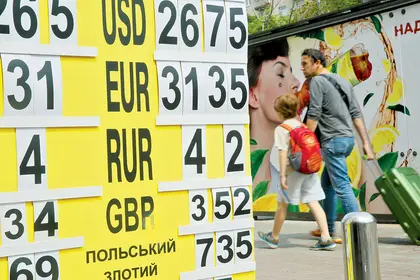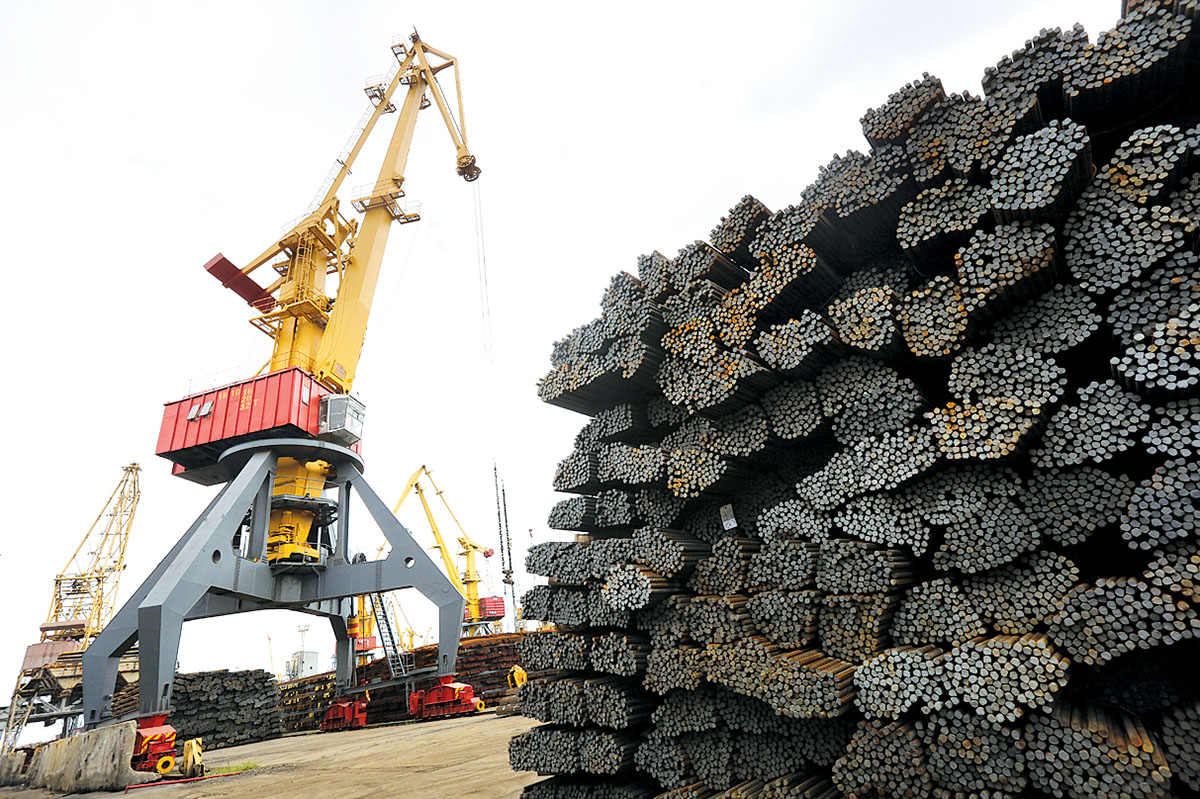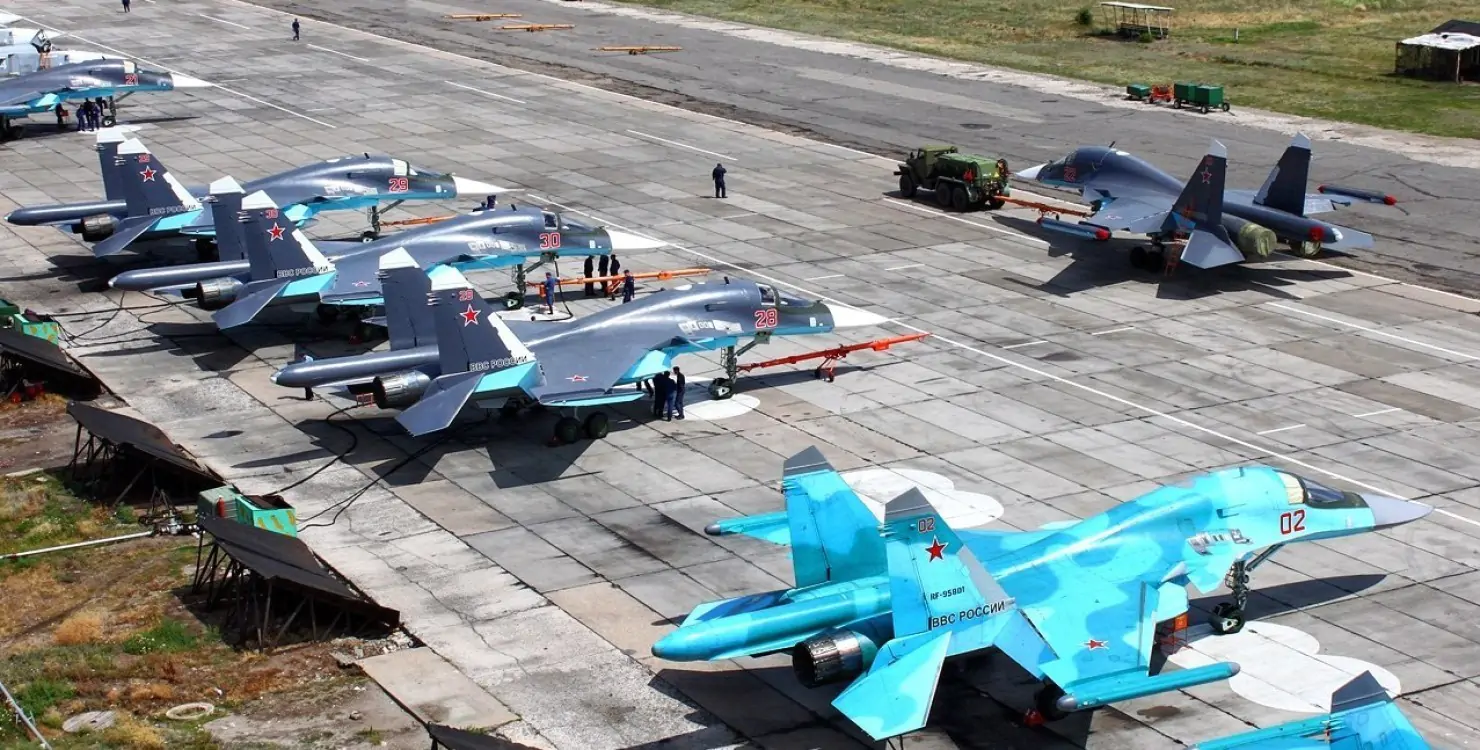As Ukraine gears up for Independence Day and its annual military parade on Aug. 24, it might consider including some economists, business people, lawyers and civil society advocates in the march.
Despite the ongoing war and largely stalled reform drive, some of Ukraine’s most significant victories in the last 12 months have been in economy and business. Some wins are obvious — for example, the country’s court victory against Russia’s state-controlled natural gas company Gazprom. But others are more subtle, according to experts.
- Find the most up-to-date war in ukraine update in the Kyiv Post's daily news items for today.
- Look at the most up-to-date Ukraine news that came out today.
JOIN US ON TELEGRAM
Follow our coverage of the war on the @Kyivpost_official.
Either way, the Ukrainian economy remains a mixed bag: the country has several key accomplishments, but is still fighting an uphill battle against corrupt practices, flaccid growth, and weak foreign direct investment. Here are some of the year’s top events.
Naftogaz beats Gazprom
On March 1, a Stockholm arbitration court ruled in favor of Ukrainian state gas company Naftogaz in a court case focused on two agreements the company had signed with Gazprom in 2009. The court concluded that Gazprom owed Naftogaz $2.6 billion for failing to deliver gas to Ukraine for transfer onward to Europe.
“It was a big win for Ukraine, simply because not even Ukraine expected to win this,” says Balazs Jarabik, a non-resident scholar at the Carnegie Endowment for International Peace.
But Jarabik warns that this story is not over. Since the Stockholm ruling, the two gas companies have continued to battle it out in court. Meanwhile, Russia and Germany are currently building the Nord Stream 2 pipeline, which would eliminate the need for Russia to send gas through Ukraine to Europe. That will potentially deny Ukraine transit fees, which make up roughly 2 percent of the country’s gross domestic product.
Earlier this year, Kyiv managed to get an oral consensus from German Chancellor Angela Merkel that transit would continue through Ukraine, Jarabik says, but this will be difficult to negotiate while arbitration between Naftogaz and Gazprom is ongoing.
“Given (Nord Stream 2), time is not on Ukraine’s side,” he adds.
Still, there may be other benefits from the win. According to former Economy Minister Aivaras Abromavicius, Ukraine has not seen many victories in international courts, which makes this one significant.
“Hopefully, this inspires others within the country to fight for (the) interest of Ukrainian taxpayers and citizens,” he says.
Anti-Corruption Court
Among Ukraine watchers and experts, one of the least controversial ideas is that extensive corruption hinders Ukraine’s economic development.
On June 7, the Verkhovna Rada passed a law to create a High Anti-Corruption Court to hear corruption cases in the country.
The court is an important step in Ukraine’s battle against graft, but the law’s passage was also a bid by Kyiv to secure another tranche of the $17.5-billion aid package from the International Monetary Fund, or IMF.
However, there was a problem: the law required that appeals in ongoing cases would be heard in the old — i. e. corruptible — courts. This enraged many anti-corruption activists, who felt it was effectively an amnesty for suspects in current corruption cases. It also did not meet the IMF’s requirements.
On July 25, the Rada passed an amendment to the corruption court law to resolve the issue, and the IMF indicated that the amended law would comply with its demands.
Still, challenges remain. Anti-corruption activists worry that old courts may deliver hurried verdicts in current corruption cases or prosecutors may close cases to prevent them from being heard in the new High Anti-Corruption Court. There are also concerns about the selection of judges and experts for the Council of International Experts, the court’s six-member foreign advisory body.
“Despite getting closer to setting up an Anti-Corruption court, Ukraine has not made any meaningful steps in fighting corruption,” Abromavicius told the Kyiv Post in an email. “There is no genuine political will to change the situation. And this continues to affect the country’s image and investment flows negatively both inside and outside of Ukraine.”
Central bank
One of Ukraine’s less obvious accomplishments this year has been the work of its central bank. The National Bank of Ukraine has actually faced a difficult year, says Timothy Ash, senior emerging markets sovereign strategist for Bluebay Asset Management Company.
In May 2017, Yakiv Smolii became the bank’s acting governor. It took the Verkhovna Rada until March 2018 to confirm him in that post. In other words, for 11 months Smoliy lacked full authority a governor.
Despite that, he has “proven himself in the job,” Ash says. Smolii has made difficult decisions, such as hiking interests rates, and has conducted an orthodox monetary policy. The hryvnia’s exchange has remained largely stable, albeit with seasonal fluctuations.
“The bank is now established as a very credible institution. There’s a perception (of this) both domestically and outside Ukraine,” Ash says.
Currency law
In July, Ukrainian President Petro Poroshenko signed a new law simplifying foreign currency operations for both individuals and businesses.
Liberalizing currency controls is part of Ukraine’s economic association agreement with the European Union. Although the law has not yet come into effect, economists and business people believe it will help attract investors to Ukraine and reduce opportunities for corruption.
According to an analysis by Deloitte, under the law the National Bank will gradually lift currency restrictions following the principle that anything not expressly forbidden should be allowed. Transactions of under Hr 150,000 (roughly $5,465) will no longer be subject to currency controls. And non-residents and foreign entities will now have the option to open bank accounts in Ukraine and conduct currency operations through them.
Perhaps most importantly, the law will allow Ukrainian firms to invest abroad without applying for an individual license from the central bank.
Previously, Ukrainian businesses were often forced to register companies in Europe in order to trade with the world. Now, they will “organize sales systems in other countries and open representation offices without breaking our internal law,” Denys Krasnikov, vice president of the Ukrainian League of Industrialists and Entrepreneurs business union, told the Kyiv Post in July.
And the new law sets a clear path to gradually decreasing currency controls.
“The game plan is to further liberalize the foreign exchange regime,” Ash says. “So that’s a positive.”
Value-added tax
Another critical achievement has been efforts to rout out corruption in the country’s value-added tax — or VAT — system. The old system allowed tax evasion and embezzlement to rob the Ukrainian economy of billions of hryvnia.
In April 2017, under the guidance of then Finance Minister Oleksandr Danylyuk, Ukraine implemented a public VAT refund registry. The registry helped prevent officials of the State Fiscal Service from demanding bribes from businesses for their VAT returns.
Between April 2017 and May 2018, Hr 148 billion ($5.4 billion) was reimbursed, Danylyuk said during a business conference in May, according to UkrInform.
Former Economy Minister Abromavicius believes this is one of the major accomplishments of the past year. “Never before all exporters were getting back from the state what belongs to them on time and in full and without corruption,” he told the Kyiv Post in an email. “Bravo! Now the big challenge is to keep it that way.”
Exports to the EU
Ukraine’s exports to the EU have also been on the rise, an important development as the country moves to reorient its economy away from Russia.
In 2017, the EU imported 16.7 billion euro ($19 billion), compared to 13.2 billion euro ($15 billion) in 2016, according to European Commission data.
Then, in the first four months of 2018, Ukraine’s exports to the EU increased by 26.6 percent or $1.4 billion, according to the Economy Ministry.
However, during that same period, imports from Russia also increased by 31 percent, reaching $2.6 billion. In 2017, Russia remained Ukraine’s top trade partner.
Work to do
Beyond these accomplishments, the Ukrainian economy has seen roughly three percent growth — not a terrible figure, but one that fell short of many hopes, according to Ash.
“Ukraine is still at the back end of the European growth states, beating Russia, but I think it should compare itself more with countries of central and eastern Europe,” he says.
The reason for this stunted growth is obvious to virtually everyone: corruption.
Evgenia Akhtyrko, an analyst at Concorde Capital, believes that economic growth would have been much more pronounced had Ukraine implemented greater reforms and taken more concerted action to fight corruption.
Without deep and systemic changes to laws and policies, she fears that even positive developments may not last.
“If something bad happens, these results can be lost because of the lack of reforms,” Akhtyrko says.
But the Carnegie Endowment’s Jarabik believes that pessimism over Ukraine is overstated. The country failed to meet most expectations because they were simply not realistic, he says.
According to Jarabik, Ukraine finds itself between “a rock and a hard place,” struggling to meet both IMF and EU association agreement requirements and improve the lives of its citizens. The IMF opposes Kyiv’s efforts to increase salaries and pensions, but the government has no other choice if it wants to fight poverty, gain public support, and stimulate the economy.
“Just think about it: Ukraine tries a neoliberal [economic] strategy when the Europeans are revolting against [that] across the continent,” he told the Kyiv Post in an email.
Going forward, Jarabik believes Ukraine should focus on holding “normal, competitive, and democratic elections” and forming a stable government. He believes this could demonstrate the country’s stability and help attract foreign direct investment.
Meanwhile, Ash suggests that Kyiv should focus on continuing to liberalize its foreign exchange regime and resolving its issues with the IMF.
Abromavicius also stresses continued IMF cooperation, and says the country must keep its economic recovery on track.
Akhtyrko emphasizes an even larger, longer-term battle: the fight against corruption. But with two elections — presidential and parliamentary — coming up in 2019, she isn’t expecting an anti-corruption breakthrough.
“It’s unlikely we can hope for that,” she says.
You can also highlight the text and press Ctrl + Enter





